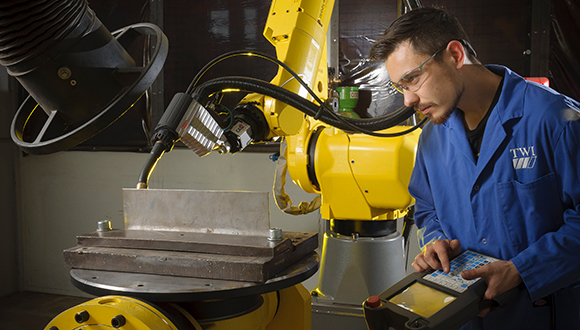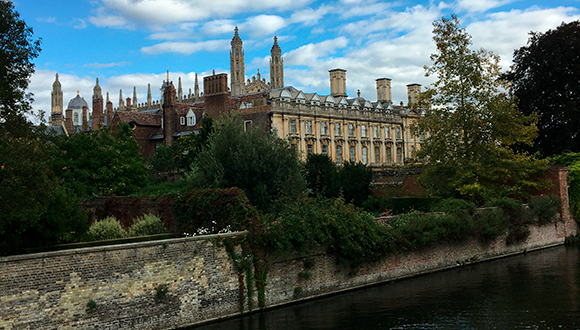Sun, 11 October, 2020
Get to know Anurag, our latest NSIRC PhD student in structural integrity at TWI
Anurag graduated from the Indian Institute of Technology Bombay (IIT B), India, before working in Element Materials Technology Abu Dhabi in January 2016.
He has worked for almost five years as a Failure Analysis Metallurgist at Element, and had completed multiple failure analysis projects on weld failure and corrosion damages from oil and gas, as well as marine industries. The work-based experience led him to develop an interest in Engineering Critical Assessment (ECA).
Anurag's studentship is sponsored by Lloyd's Register Foundation and awarded by Coventry University.
```
```
How did you find a PhD programme that best suited you?
To be honest, there is a small story about how I found my topic. I was working in my previous job as a Failure Analysis Metallurgist and my immediate supervisor at Element Abu Dhabi had instilled a curiosity for ECA and fracture mechanics.
So I started looking for courses in ECA and structural integrity. That is when I came to know about the NSIRC and industry-based postgraduate academia at TWI Cambridge. Fortunately, you had topic that was in my domain.
I have known about TWI since my undergrad days because I used the Technical Knowledge webpage to study. It has an abundance of literature on welding and NDT. When I got selected for the full-time doctorate, it was a proud moment for me.
 TWI is a world-renowned research organisation with members that include ADNOC, Rolls-Royce, BMW and many other multi-national organisations. Photo:TWI Ltd
TWI is a world-renowned research organisation with members that include ADNOC, Rolls-Royce, BMW and many other multi-national organisations. Photo:TWI Ltd
Can you tell us about your industrial PhD topic?
At NSIRC and TWI, I am working on the project 'crack behaviour in a residual stress field at fillet welds in ship structures'. The main aim of the research degree is to characterise the residual stresses at the filet weld toe area of the stiffeners by using advanced tools such as neutron diffraction and after that studying the crack behaviour in the presence of residual stress.
Crack behaviour in a residual stress field at fillet welds in ship structures
Residual stresses are an important consideration in the structural integrity of ship welds and the investigation of residual stresses at the fillet weld toe area will help design and prediction of the fatigue life of these welds. As welding is an integral part of ship fabrication, in-depth knowledge of residual stresses is necessary to avoid over-designing and at the same time help in obtaining an optimum life for the ship structures.
Being an PhD candidate at TWI with NSIRC, what's that like?
TWI is a world-renowned research and technology organisation for welding and NDT and working there is a dream come true for engineers. The most striking thing of the industrial PhD student is you will work within industry with TWI experts. To add to that, TWI also boasts many advanced tools and responsible for making standards at the international level. In short, it is the best place to learn and expand the knowledge which will make the PhD journey fruitful.
From an International students' perspective, how are you finding Cambridge during Coronavirus?
Because of the ongoing pandemic, I am not able to explore much of Cambridge. However, passing through the city centre is a surreal experience. I must say it is a bustling city with students from various parts of the world and of course the buildings which reflect the rich history of the city. The city is green without any air pollution and is well connected with bus service and what else is required to produce top-class research.
 View over the river with King's College Chapel in the distance. Photo: NSIRC
View over the river with King's College Chapel in the distance. Photo: NSIRC
Did you picked up any new hobbies during lockdown...?
Not really, but on my weekends I study for an online courses on the mechanics of materials to brush up my basic concepts.
What advice would you give someone who is thinking about applying for a PhD Studentship with NSIRC?
For anybody who is looking to become a doctoral student with NSIRC, I will say “just do it”. The foremost reason is the industrial collaboration and supervision from world experts and integrity management specialists at TWI.
Another plus point of doing a PhD with NSIRC and TWI is that the topics of the project are challenging and chosen from the current need of the industry. Working on something that is in demand will enhance the future career prospects.
.....
Other papers that may be of interest: